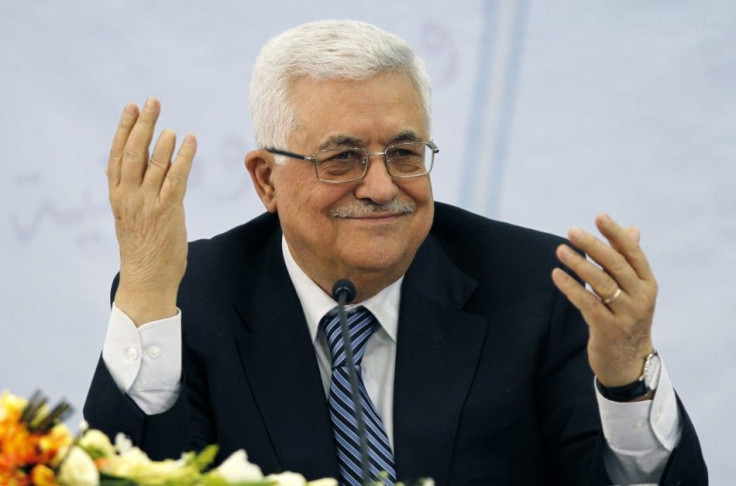Palestinian Authority President Abbas to Seek Full U.N. Membership

Palestinian Authority President Mahmoud Abbas said that he will demand full membership for a Palestinian state in the United Nations (U.N.), which may result in a diplomatic collision between it and Israel and the United States.
President Abbas, who is going to the U.N. General Assembly next week, said in a televised speech, “We are going to the United Nations to request our legitimate right, obtaining full membership for Palestine in this organization.”
Israel and its chief ally, the United States, strongly oppose this plan -- the two countries have taken the stand that only by means of direct negotiations can a Palestinian state be formed.
The Palestinian Authority, on the other hand, is of the view that the direct negotiations, which have been going on for the last two decades, have reached a deadlock because of Israel's stand on various issues. First, Israel has refused to put an end to the expansion of settlements in the West Bank and East Jerusalem, which are the territories it has occupied since the Arab-Israeli war in 1967. The Palestinian Authority has asked for these lands to be returned, together with the Gaza Strip, to form an independent state.
It was nearly a year ago that the U.S.-supported talks, between Abbas and Israeli Prime Minister Benjamin Netanyahu, failed, with Israel declining to extend a partial moratorium on West Bank settlement construction.
In order to recommence the negotiations, the Palestinian Authority has asserted that Israel will have to call for a complete stoppage of construction in the West Bank.
Authorities from the U.S. said it will veto any statehood resolution in the Security Council, effectively preventing full recognition of a Palestinian state. At the same time, the U.S. is keen to avoid such a situation, since the veto will likely weaken its position among Arab nations. Beginning in early 2011 with the fall of the Tunisian government, the rise of several Arab populations against their dictators has made the Palestine issue gain a higher level of symbolic importance than it has had in recent years.
Israel's stand is that it is willing to officially accept a Palestinian state, but only if the borders are left as they are at present. Thus, it would retain control of the West Bank and Jerusalem. Its justification for this approach is that with Israel controlling the border, there would be a lesser need to fear missile attacks by anti-Israeli militant groups. Palestinians are completely unwilling to accept this stand.
President Abbas stated that the present planned move in the U.N. is not going to end the occupation, and also that it is not intended to delegitimize Israel but rather to advance negotiations between the two parties as equals.
The Palestinians can approach the full U.N. General Assembly in the event that the .S. vetoes the resolution. If it does so, Palestine could be recognized as a non-member state by the U.N. General Assembly. If this happens, the Palestinians will gain access to international bodies, including the International Criminal Court, from where it would be able to seek legal action against Israel for many years of occupation of the West Bank.
Meanwhile, the Hamas movement, which controls the Gaza strip, has dismissed the plan, and it has banned public demonstrations in Gaza to support the move.
The fear that the move in the U.N could result in violence in the West Bank region has caused Israel to keep its forces on high alert.
© Copyright IBTimes 2025. All rights reserved.




















